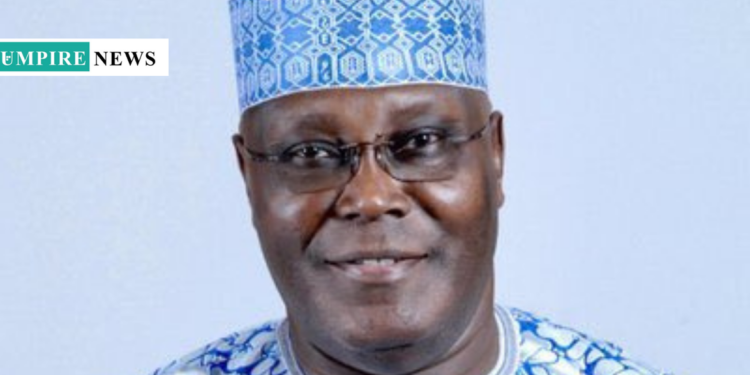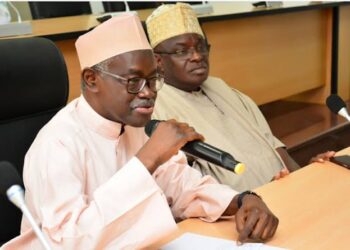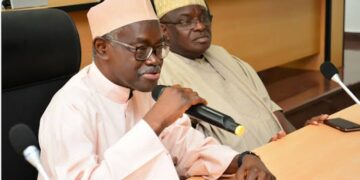The Presidency has responded sharply to comments made by former Vice President Atiku Abubakar on the nation’s current economic situation, attributing his loss in the 2023 presidential election to arrogance, poor strategy, and a disconnect from Nigeria’s realities.
The Special Adviser to the President on Information and Strategy, Mr. Bayo Onanuga, criticized Atiku’s proposals and political conduct in a statement titled “Time for Atiku Abubakar to end his grand illusions and fantasies.”
Onanuga argued that Atiku’s call for an initial consultation period before implementing critical economic reforms revealed a troubling lack of awareness about Nigeria’s pressing economic needs.
He cited Atiku’s opposition to President Bola Ahmed Tinubu’s decisive actions, such as the removal of fuel subsidies and the unification of the foreign exchange rate, as evidence of his inability to grasp the economic challenges facing the country.
Upon taking office in May 2023, President Tinubu swiftly ended the fuel subsidy regime and implemented foreign exchange reforms. These measures, while challenging, were deemed necessary to stabilise the economy.
However, they have also led to increased living costs, including higher prices for fuel, food, and transportation. Atiku criticized these policies as “trial and error” approaches that inflicted unnecessary pain on Nigerians. He outlined alternative measures he would have adopted, including a phased approach to subsidy removal and comprehensive consultations with stakeholders.
The Presidency dismissed Atiku’s suggestions, labelling them as outdated and impractical given the urgent economic context. Onanuga noted that the Nigerian economy required immediate intervention, a challenge Tinubu met head-on, unlike Atiku’s proposed lengthy consultations and privatization plans. The Presidency described Atiku’s approach as ineffective and detached from the immediate needs of the economy.
Onanuga also took issue with Atiku’s economic proposals, particularly his stance on privatizing the country’s four government-owned refineries. According to the Presidency, Atiku’s track record on privatization during his tenure as vice president showed poor judgement, often selling national assets at low prices to private individuals without guaranteeing technical capability or improved operations.
The Tinubu administration, in contrast, has adopted a model of rehabilitating and leasing refineries to private sector managers, aiming to boost domestic production and stabilize retail fuel prices.
In a broader critique, the Presidency accused Atiku of focusing more on discrediting Tinubu’s presidency than addressing the internal issues within his own party, the Peoples Democratic Party (PDP). Onanuga claimed that Atiku’s repeated unsuccessful bids for the presidency have left him embittered, and his criticisms reflect envy rather than constructive opposition.
He added that Atiku’s loss in the 2023 election was not merely a rejection of his ideas but also a response to his political arrogance, insensitivity to Nigeria’s diversity, and disregard for power rotation agreements within his party.
The statement also pointed out that Atiku’s criticisms lack a solid understanding of the ongoing reforms and their intended long-term benefits. Onanuga highlighted the removal of the fuel subsidy as a bold step that had saved the country substantial revenue, projected at N5.4 trillion for 2024.
This revenue, according to the Presidency, is being redirected toward infrastructure development and social welfare programs, including targeted cash transfers aimed at alleviating the impact of subsidy removal on vulnerable Nigerians.
Furthermore, the Presidency defended the administration’s broader economic strategies, including its social intervention initiatives. These measures, it argued, are designed to provide immediate relief while laying the groundwork for sustainable economic growth. Programs such as student loans, consumer credits, and the Presidential CNG Initiative have been introduced within Tinubu’s first year to enhance social inclusion and support low-income households.
The Presidency also dismissed Atiku’s foreign exchange management proposal, describing his idea of a managed float system as outdated and impractical. According to the statement, this approach resembles the previous fixed exchange rate system, which created artificial scarcity and allowed a privileged few to access subsidized foreign exchange. The Tinubu administration’s decision to unify the exchange rate, despite initial volatility, aims to foster a more transparent and efficient forex market.
The Presidency argued that Atiku’s policy recommendations fail to present a credible alternative to Tinubu’s reform agenda. It suggested that his critiques are rooted in political bitterness rather than a genuine desire to address Nigeria’s challenges. Onanuga urged Atiku to focus on rebuilding his reputation and offering constructive criticism instead of what the statement described as “petty politics” and unrealistic economic fantasies.







































